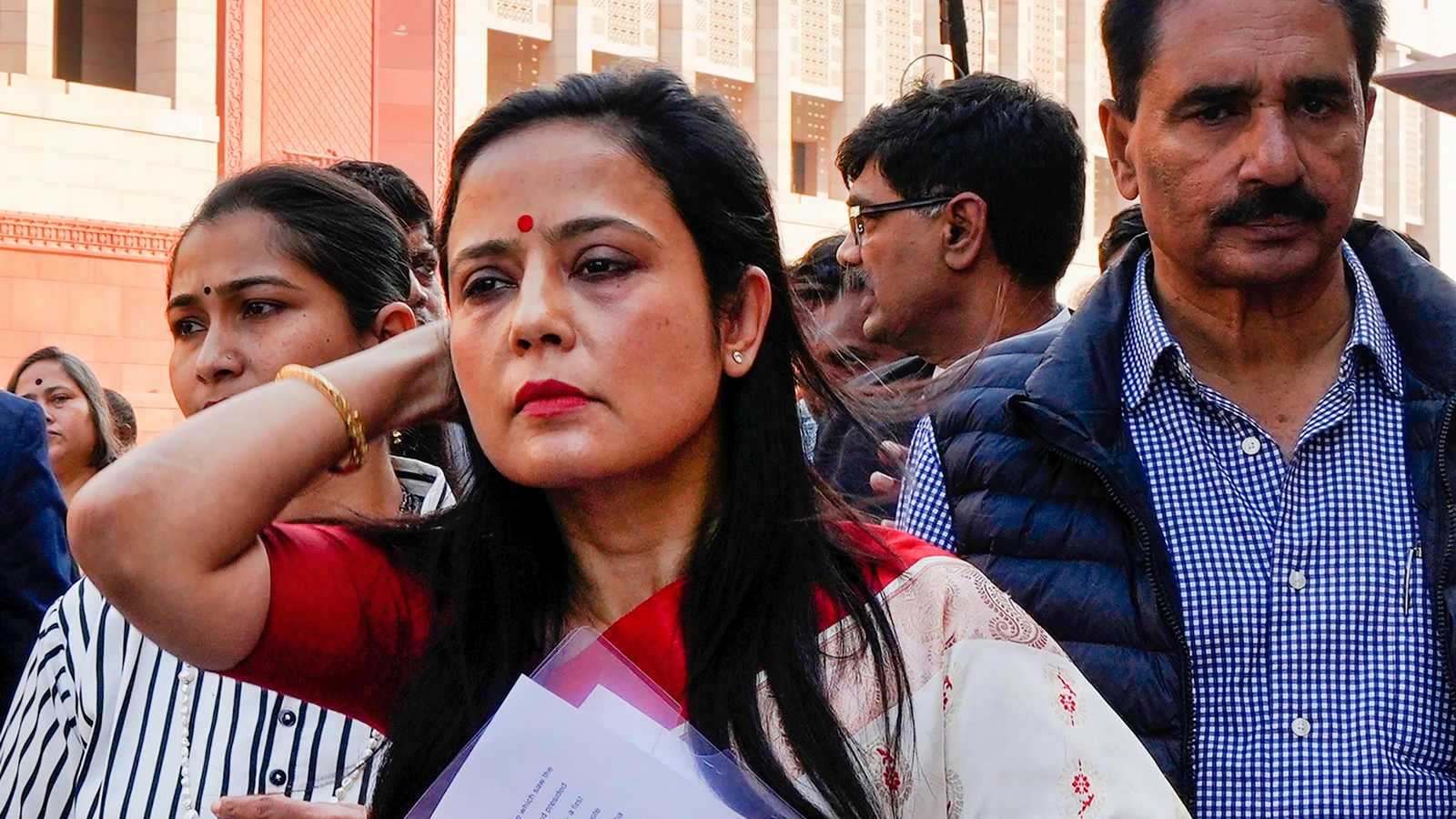The expulsion of Mahua Moitra, the Trinamool Congress MP from the Lok Sabha is unique in many respects. Firstly, it is not clear whether the Ethics Committee of Lok Sabha has the jurisdiction and the mandate to recommend expulsion. The principal charge against Moitra was that she received money for asking questions in Parliament from a Dubai-based businessman. If an MP accepts money for asking questions or doing other parliamentary work, he will be guilty of gross violation of the privileges of the House. But then, such cases are always investigated by the Committee of Privileges, or in certain situations, any special committee set up by the House for that purpose. The special committee, if set up, is given a clear mandate by the House to investigate the speecific allegation, find the truth and suggest punishment. If the allegation is found to be true, these committees can, in the appropriate case, recommend even the expulsion of the member from the House. Since the acceptance of bribes by an MP is a serious breach of privilege and contempt of the House, the House takes action as per the recommendations of the committee.
One important point to be noted here is that members of the Indian legislature — Parliament and state legislatures — enjoy the same privileges which were available to the members of the House of commons as on January 26, 1950. Although the privileges of the legislature have not been codified, there is now a greater certainty about them in the UK as well as in India. Every legislature has a committee to investigate the breaches of privilege of the House and also of the members. This committee is exclusively tasked to investigate the breaches of privilege and cases of contempt of the House. Contempt of the House is fairly wide term and every misconduct can be brought within its ambit. No other regular committee of Parliament has any jurisdiction over the privilege matters. So Moitra’s case being a case of breach of privilege in terms of the main complaint should have been investigated by the Committee of Privileges. Instead it was referred to the Ethics Committee, presumably on the basis of a supplementary charge that she shared her login details with a businessman who tabled questions in Parliament against another business house.
The Ethics Committee looks into what is termed as unethical conduct of the MPs. Unethical conduct has not been defined by the Rules. Nevertheless, it can be safely assumed that conduct which does not strictly amount to a breach of privilege or contempt of the House, but at the same time is unacceptable by the standards of a member of Parliament, can be brought before this committee. It can certainly recommend punishments such as admonition, reprimand or, in some cases, suspension from the sittings of the House.
Expulsion from the House is the most serious punishment the House inflicts on its members. But, traditionally, this punishment has been reserved for cases of serious and aggravated breaches of privilege or contempt of the House. A misdemeanour which does not amount to a breach of privilege does not attract the punishment of expulsion.
Mohua Moitra has been held guilty of unethical conduct in sharing her personal password and login details with another person who is alleged to have misused it for promoting his business interests. Technically, it is not possible for the person to table questions through the Lok Sabha portal without them being seen by the MP. If the MP has seen them it must be presumed that those questions have been approved by her. The questions which are thus submitted to the Lok Sabha secretariat are examined in terms of the Rules, and admitted or disallowed by the Speaker. Once the Speaker admits the questions, they are replied to by the government. If the Speaker admits a question and the government replies to it, no further issues can arise there from. The motive of an MP behind asking a particular question is not looked into or investigated by the House. Under the House Rules, the speaker will disallow a question which is about an individual or an institution which is not responsible to the government. Similarly, a question relating to a matter with which the government of India is not directly concerned will not be admitted by the Speaker. Therefore, the question of misconduct of an MP involving the promotion of business interest of any individual through Parliament questions does not, strictly speaking, arise in such cases.

Article 122 of the Constitution prohibits the courts from inquiring into the proceedings of the House on the ground of any procedural irregularity. However, the Supreme Court had held in Raja Rampal vs Hon’ble Speaker, Lok Sabha (2007) that this immunity is not available to the proceedings when the challenge is on the ground of unconstitutionality, gross illegality and denial of natural justice. In the above case, the challenge was against the expulsion of a member by the House. Significantly, the Court said in its judgment that it would ascertain the existence of a privilege, the violation of which has led to the expulsion. Thus, according to the Court, the breach of an existing and ascertainable privilege of the House is the sine qua non of the exercise of the power of expulsion. This judgment can be considered to be an authority for the proposition that the expulsion of a member of the legislature can be resorted to only when there is clear breach of a known and identifiable privilege of the House. In the case of Moitra no violation of a known privilege has been identified. Unethical conduct remains undefined. A member of the House, as per the logic of the Raja Rampal judgment cannot be expelled from the House on the basis of an undefined offence. It may be noted here that the sharing of a password for tabling questions in Parliament is not prohibited by the House Rules.
The legislature has the inherent power to punish its members for wrongdoing. But when such punishment is given through a majority decision, it is absolutely essential to ensure the integrity and fairness of the procedure followed in establishing the guilt. In all civilised democracies, the legislature resorts to expulsion in the rarest of the rare cases. At a fundamental level, there is a disquieting unnaturalness about MPs terminating, through a voice vote, the membership of a fellow MP elected to the House by two million people.
The writer is former Secretary General, Lok Sabha

Ananya Das is your guide to the latest trends, viral sensations, and internet phenomena. Based on a keen understanding of digital culture, Sophie navigates the ever-evolving landscape of trending topics. With an insightful and engaging approach, she explores what’s buzzing across social media platforms, ensuring readers stay in the loop with the most talked-about and shareable content online.


